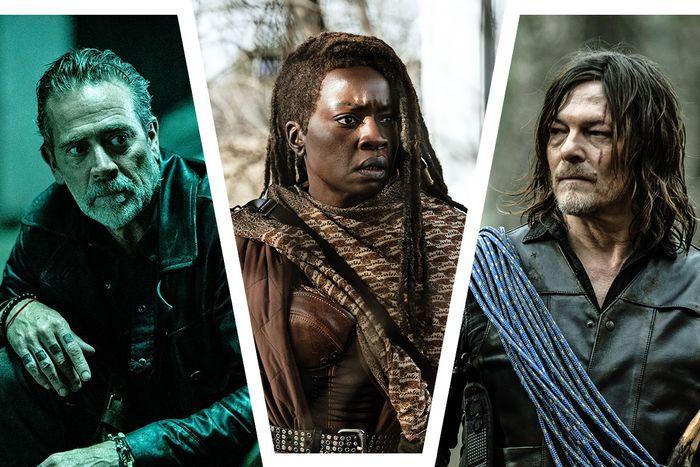The Walking Dead, a television series that premiered in 2010, quickly became a drama-this-year/” title=”Why Breaking Bad Remains the Best TV Drama This Year”>cultural phenomenon, captivating audiences with its gritty portrayal of a post-apocalyptic world overrun by zombies. Based on the comic book series by Robert Kirkman, the show combined horror, drama, and intricate character development, securing a devoted fanbase and critical acclaim in its early seasons. However, as the series progressed over its 11-season run, questions began to arise about whether it had overstayed its welcome. This article seeks to analytically explore the trajectory of The Walking Dead, examining factors such as narrative evolution, audience engagement, and critical reception to determine if the series maintained its initial impact or if it faltered under the weight of its own longevity. Through a balanced assessment, we aim to understand whether The Walking Dead successfully adapted to changing viewer expectations or if it succumbed to the challenges of sustaining a long-running franchise.
Examining Viewer Engagement and Series Longevity
One of the most intriguing aspects to consider when evaluating the journey of “The Walking Dead” is the balance between viewer engagement and the show’s longevity. Over the years, the series has garnered a fiercely loyal fan base, but like any long-running show, it faced challenges in maintaining momentum. Viewer engagement is not solely determined by ratings but also by the fervor of fan discussions, social media interactions, and cultural impact. As seasons progressed, some viewers expressed fatigue over recurring plot devices and character arcs, which might have contributed to fluctuating engagement levels.
In terms of series longevity, ”The Walking Dead” demonstrated a remarkable ability to reinvent itself, with new characters and storylines attempting to refresh the narrative landscape. However, the longevity of any series raises questions about its capacity to sustain originality and relevance. The following factors play a critical role:
- Character Development: The introduction of new characters can inject fresh dynamics, but it can also lead to dilution of beloved core characters.
- Storyline Evolution: Maintaining a balance between staying true to the original premise and evolving with audience expectations is crucial.
- Market Competition: As more content becomes available, retaining audience attention becomes increasingly challenging.
Ultimately, whether “The Walking Dead” overstayed its welcome is subjective and varies among viewers, hinging on personal attachment to the series and its evolving narrative. While some may argue that the show should have concluded earlier, others appreciate the extensive universe it created, which continues to expand through spin-offs and related media.

Analyzing Storyline Evolution and Character Development
The Walking Dead has undoubtedly taken viewers on a tumultuous journey through its storyline evolution and character development. Over the years, the series has explored a myriad of themes, from survival and morality to power dynamics and the essence of humanity. Initially, the narrative was driven by intense character arcs and unpredictable plot twists that kept audiences engaged. However, as the series progressed, some fans began to feel that the plot became increasingly repetitive, with certain storylines dragging on longer than necessary. This raises the question of whether the show lost some of its original spark by attempting to prolong its narrative beyond its natural lifespan.
Key Elements of Storyline Evolution:
- Initial Novelty: The early seasons captured the raw chaos of a world overrun by zombies, offering fresh and thrilling content.
- Character Depth: Complex characters like Rick, Michonne, and Carol were central to the story, evolving through personal struggles and moral dilemmas.
- Stretched Arcs: Later seasons introduced new communities and conflicts, but some felt these additions diluted the show’s core focus.
Character Development:
- Dynamic Growth: Characters underwent significant transformations, with some experiencing redemption, while others descended into darker paths.
- Redundancy Issues: As the series continued, certain character arcs seemed to recycle old themes, leading to a sense of stagnation.
- Impact of New Additions: Introducing new characters brought fresh perspectives, but sometimes at the expense of sidelining beloved originals.
Assessing Critical Reception and Fan Feedback
The journey of The Walking Dead from a groundbreaking series to its eventual conclusion has been a topic of much debate among critics and fans alike. Over the years, the show has garnered a spectrum of reactions, with some praising its gritty storytelling and character development, while others have expressed fatigue over its prolonged run. Critical reception has varied considerably across its eleven seasons. Early seasons were hailed for their innovative take on the zombie apocalypse genre, earning high praise for their suspenseful narratives and strong character arcs. However, as the series progressed, some critics noted a decline in storytelling quality, citing repetitive plotlines and a lack of fresh ideas as contributing factors to what they perceive as a dip in the show’s once-stellar reputation.
Fan feedback provides another layer of insight into the show’s trajectory. The series has maintained a loyal fan base, as evidenced by strong viewership numbers and active fan communities online. Yet, there is a noticeable division among fans regarding the show’s longevity. Some appreciate the extended exploration of the post-apocalyptic world and its characters, while others feel the show has overstayed its welcome. Common fan critiques include:
- Plot Fatigue: Repetitive story arcs and predictable character decisions.
- Character Development: Mixed opinions on the evolution or stagnation of key characters.
- Pacing Issues: Concerns about slow pacing in later seasons.
Ultimately, the critical and fan feedback underscores the challenges of sustaining a long-running series in a way that consistently meets high expectations while exploring new narrative territories.

Exploring Future Prospects and Franchise Opportunities
As the curtain falls on the main series, The Walking Dead universe still holds a wealth of untapped potential. For those looking into future prospects, the franchise has already begun branching out with spin-offs like “Fear the Walking Dead” and ”The Walking Dead: World Beyond,” each offering unique narratives and perspectives. These expansions not only keep the franchise alive but also allow for a deeper exploration of its vast universe. Additionally, the focus on character-driven stories provides fertile ground for new series that could captivate both old fans and newcomers.
- Spin-offs and Sequels: The existing and potential spin-offs open doors for fresh storytelling avenues, allowing for exploration of new themes and settings.
- Merchandising and Gaming: The franchise’s impact extends beyond television, with a strong presence in merchandise and gaming, offering lucrative business opportunities.
- Cross-Media Collaborations: Engaging with other media forms like comics and novels could broaden the narrative scope and enhance fan engagement.
Franchise opportunities abound, with the possibility of new partnerships and media adaptations that could rejuvenate interest. By leveraging its established fanbase and rich lore, The Walking Dead can continue to thrive and innovate within the ever-evolving entertainment landscape.
Final Thoughts
assessing whether “The Walking Dead” overstayed its welcome involves a nuanced examination of its narrative trajectory, audience engagement, and cultural impact over the years. While some argue that the series’ extended duration led to diminishing returns in terms of storytelling and character development, others contend that its longevity allowed for a deeper exploration of its post-apocalyptic world and themes. The show’s ability to maintain a dedicated fanbase and inspire spin-offs and adaptations speaks to its enduring appeal, despite fluctuations in critical and viewer reception. Ultimately, “The Walking Dead” serves as a case study in the challenges and opportunities inherent in long-running television series, illustrating the delicate balance between innovation and repetition. As the series closes its chapter, its legacy within the horror genre and television landscape remains a topic ripe for continued discussion and analysis.
